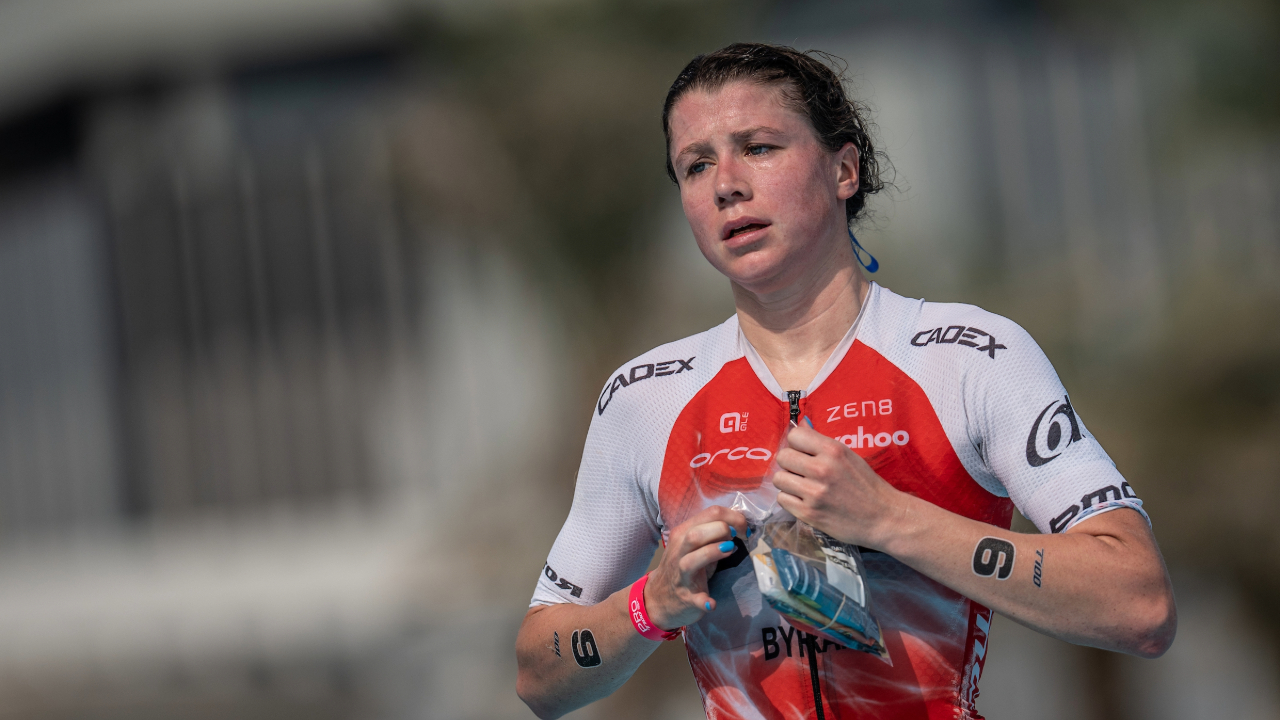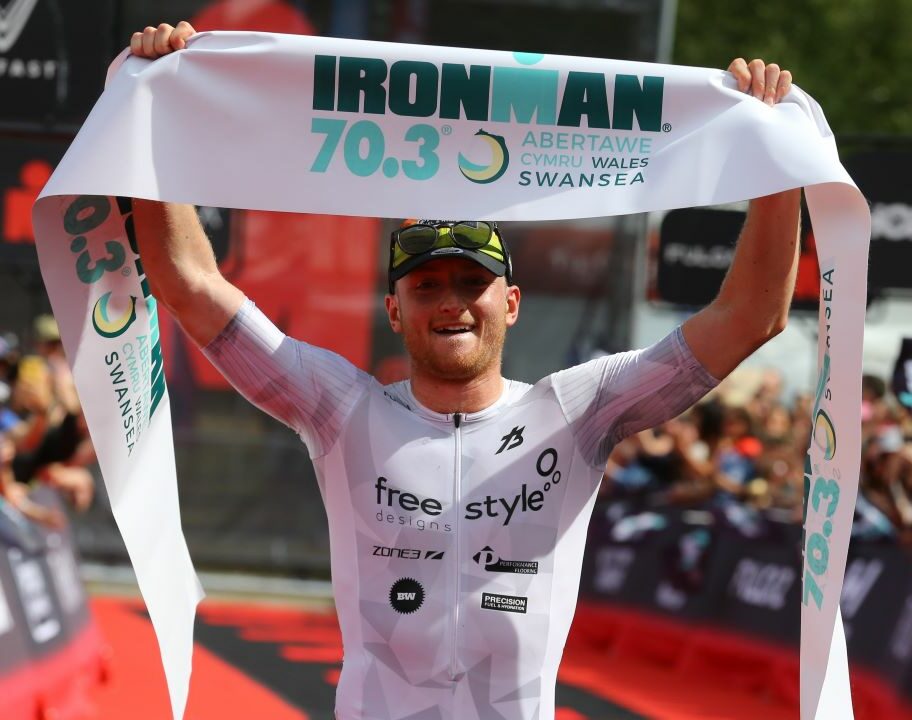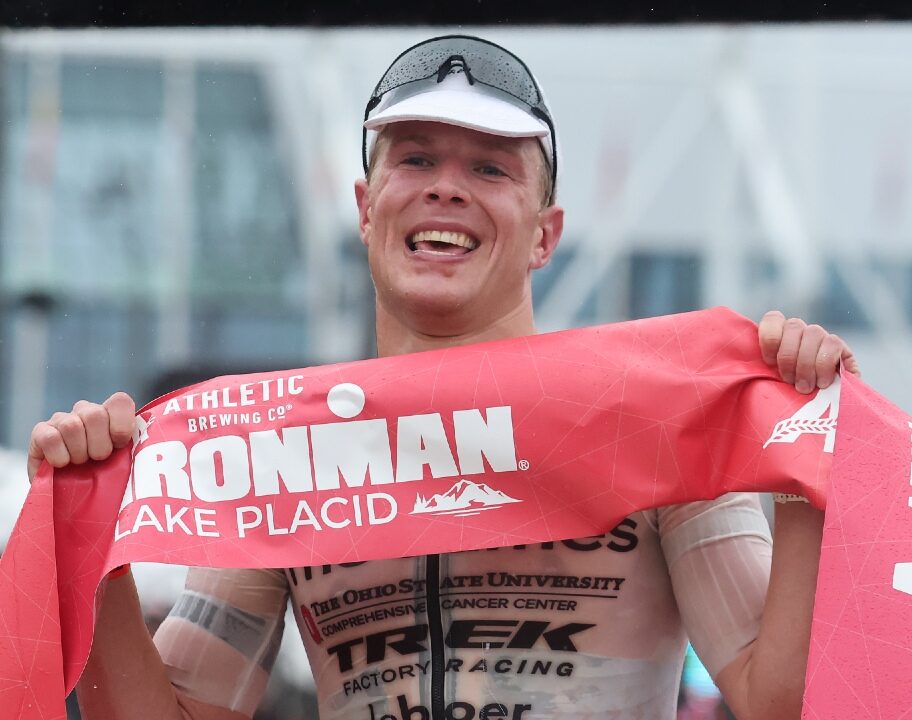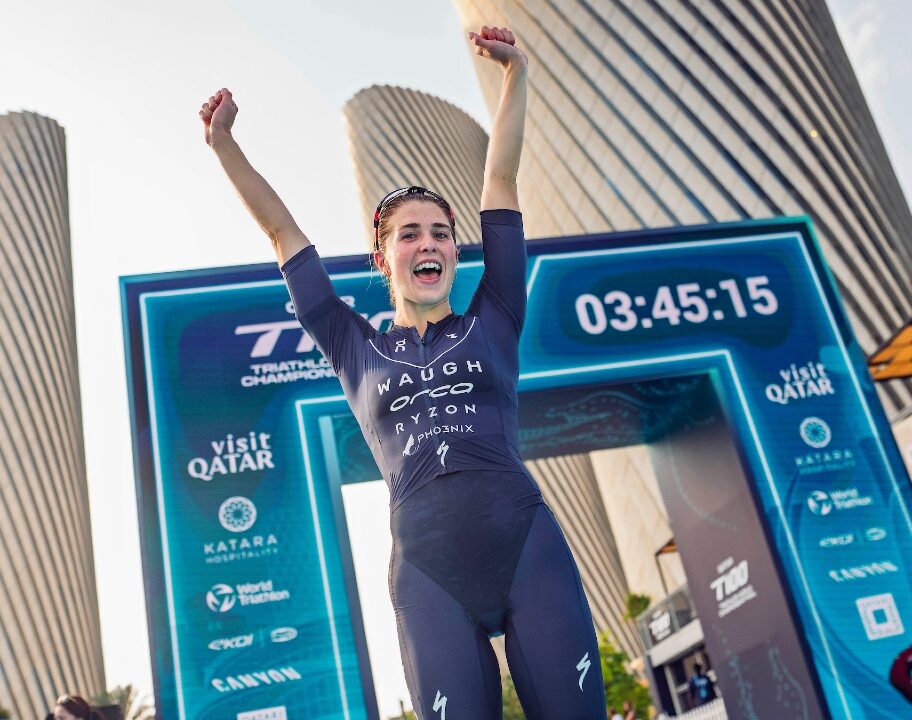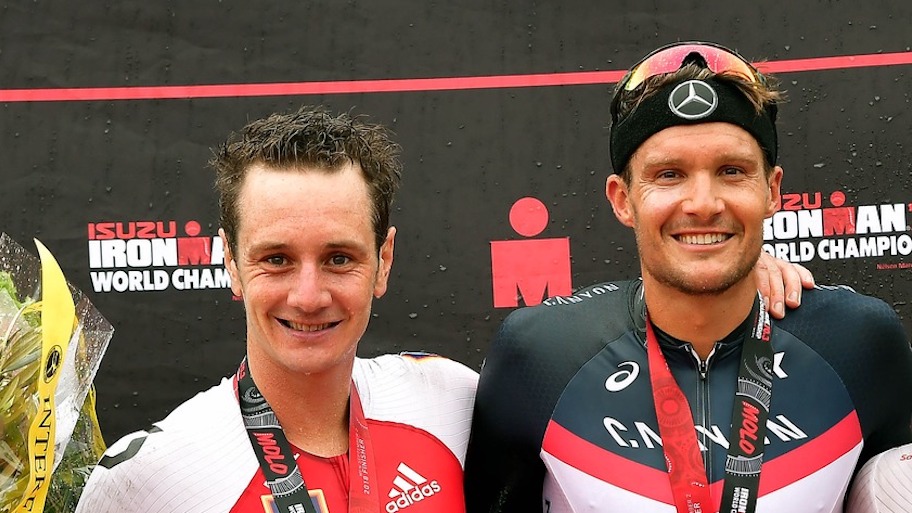The top tier of draft-legal racing, the World Triathlon Championship Series, returns this coming Friday (March 8) as the road to the Paris 2024 Olympic Games triathlon hots up. The now familiar starting point of the Yas Marina Circuit will host the 2024 edition of WTCS Abu Dhabi and it is a fascinating prospect – not just in terms of who makes the podium.
As you would expect, there are some impressive start lists scheduled to race over the Sprint distance (Women and Men), with the first points on offer towards World Triathlon Championship honours in 2024, titles earned last year by Beth Potter and Dorian Coninx.
Of course, there will be a parallel narrative running all the way until late July, as we are now in an Olympic year, and Paris 2024 is calling. Kristian Blummenfelt and Flora Duffy both secured the World and Olympic double in 2021, but what part will Abu Dhabi play in the Olympic qualification process this year?
Let’s take a look at some of the potential storylines to follow this weekend, that will develop through the first part of the season.
How Olympic qualification slots work
There’s no one-size-fits-all in relation to individual athlete qualification for Paris 2024, as the implementation and creation of selection policies (or indeed simply leaving to selector discretion), rests with each National Federation.
That said, Abu Dhabi (plus Yokohama and Cagliari), will play a key part in determining how many athletes a Federation will be able to select for the Games. The maximum number of quota slots (3) that can be earned for the Men’s and Women’s Individual events requires that nation to have three athletes ranked within the top 30 of the World Triathlon Individual Olympic Qualification Rankings as the May 27, 2024 qualification window closes.
As of the time of writing, the nations who currently meet this are as follows:
- WOMEN: France, Great Britain, Germany, USA
- MEN: France, Germany, Hungary
For the men, France and Germany’s position is all but guaranteed such is their depth. For a country like Spain, the opportunity to move from two to three slots for their men seems very realistic. They currently have five athletes inside the top 40, with three of those just on the edge of that top 30. A strong result from European Champion, David Castro Fajardo for example, would certainly boost their prospects of a Spanish trio in Paris.
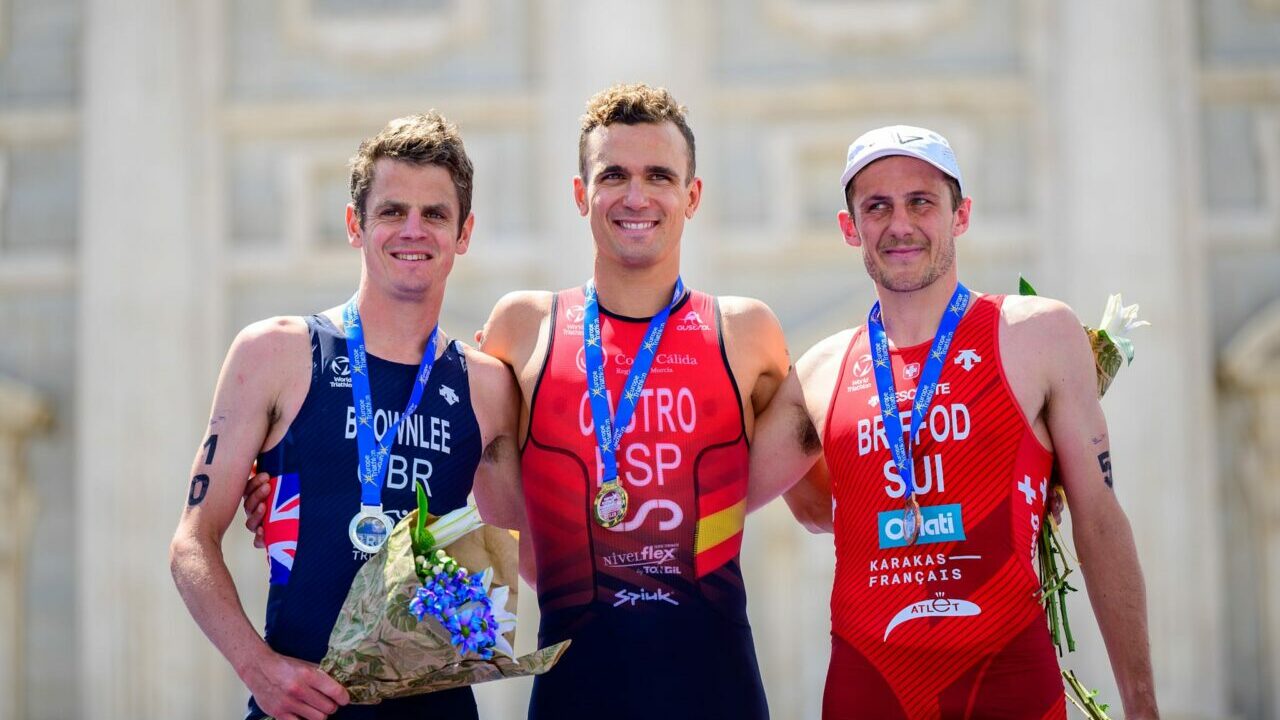
All four nations currently in position to claim three slots for the women’s individual races in Paris are strong favourites to retain that position through to the end of May. Of the nations looking to join them, Italy are certainly one of the frontrunners with Ilaria Zane (ranked #34) and Alice Betto (#45) both racing this Friday.
Bottom line then, outside of individual performances, is that Abu Dhabi can play a part in determining how many slots a nation can gain, and we’ll be tracking these changes up to the May cut-off. And just to confuse things (!), the athletes who earn those slots, are not automatically the athletes awarded them…
France – How things stand for Les Bleus
If we are referencing Paris 2024, then of course we have to talk about the French squad. As highlighted above, as of now at least, they are one of only two nations that currently looks set to qualify three athletes in both individual races. Clearly, they are one of the strongest nations in the short-course sport.
Already ‘qualified’ are 2023 World Champion, Dorian Coninx, the WTCS Sunderland winner, Pierre Le Corre and 2023 World Championship silver medallist Cassandre Beaugrand. Now, the reason for the single quotes around qualified is that even their efforts in 2023 haven’t quite fulfilled every element of the incredibly tough French qualification criteria. That additional step, with a confirmation of fitness in 2024, would be determined by one of:
- A podium finish in Abu Dhabi, or
- Top-six finish in either of Yokohama or Cagliari
While Le Corre will not race this coming weekend in the UAE, a top-three finish for Coninx and/or Beaugrand would finally tick every qualification box for them and remove any lingering small print. While it feels unlikely that either athlete would be deselected, Friday provides the first opportunity to make 100% sure.
![Cassandre Beaugrand podium Paris Test Event 2023 [Photo credit: World Triathlon / Wagner Araujo]](https://www.tri247.com/wp-content/uploads/2023/08/Cassandre-Beaugrand-podium-Paris-Test-Event-2023.jpg)
Perhaps the most interesting aspect of the French team’s selection discussions begins with the presence of both Léo Bergere and Vincent Luis. Both are World Champions and Super League Triathlon Championship Series winners in recent years, yet one of these superstars looks set to miss out on the big dance, and provide the sort of selection dilemma which every other nation can really only dream of. Abu Dhabi won’t determine that decision, but the desire to catch the selectors’ attention will provide another interesting race within a race.
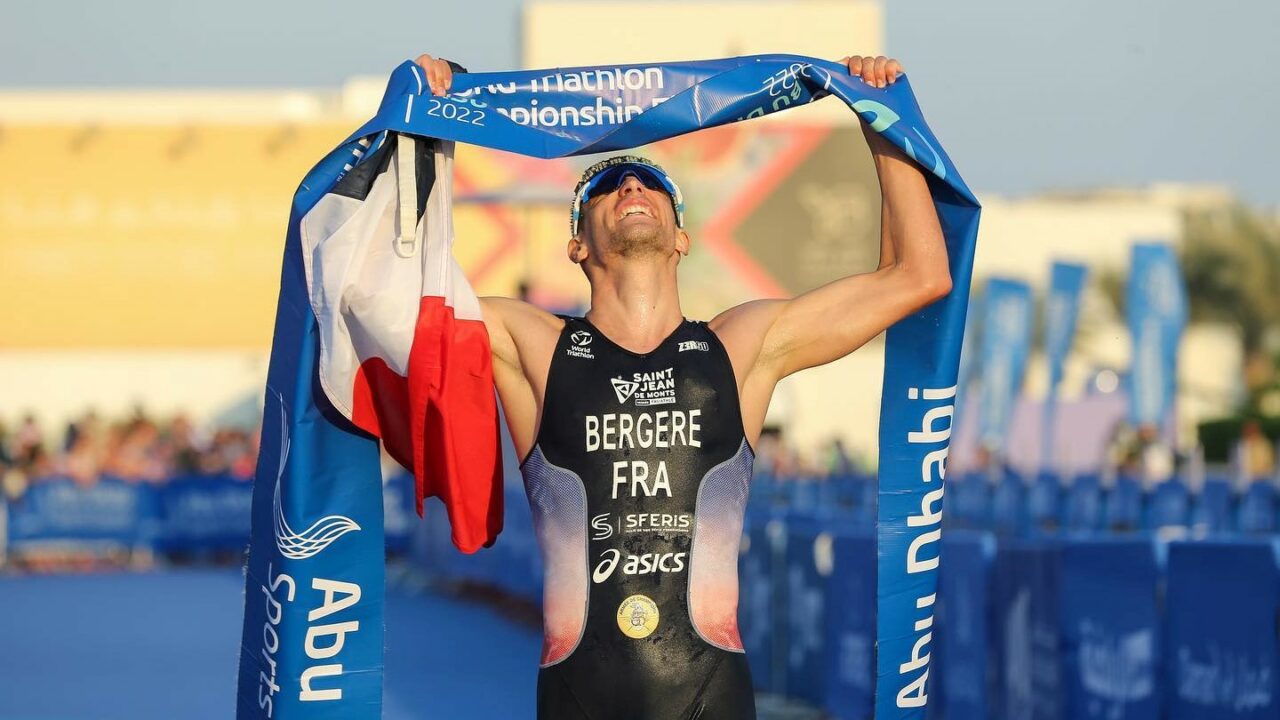
Team GB – Who joins Potter and Yee in Paris?
There will be no automatic selection available to the the Brits this weekend – but that doesn’t mean that results won’t be closely watched, and could factor into selection discussions in early June.
Beth Potter of course has already booked her slot, but with the presence alongside her of Sophie Coldwell, Georgia Taylor-Brown and Kate Waugh, there’s a full complement of other British female WTCS podium finishers from 2023 present. I’ve previously outlined the British selection process, and – confirmed by British Triathlon’s Performance Director in November – all three secured results that would tick the ‘genuine medal contender’ box.
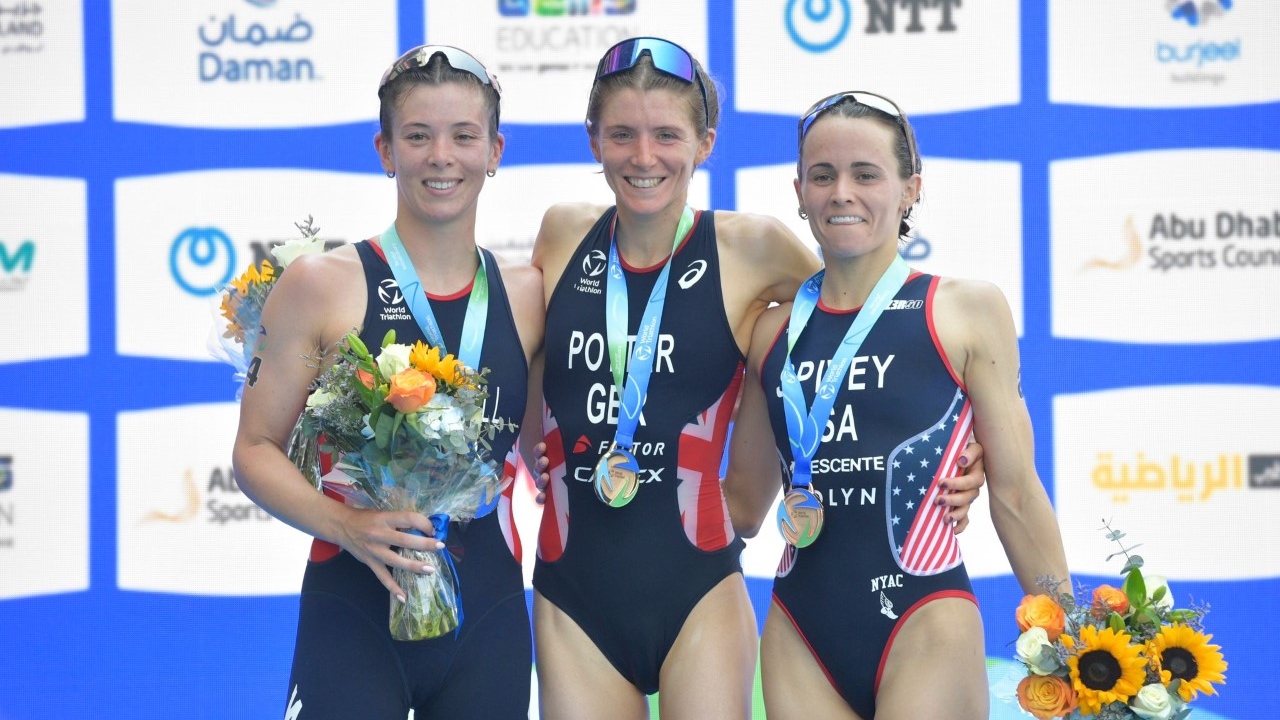
There are plenty of others who have plans to be in the selection mix – Vicky Holland, Jess Learmonth, Olivia Mathias, Sophie Alden and more – but right now at least, that trio are in prime position to make their claims for one of the two remaining slots.
A big result this weekend would certainly help, but even a win won’t secure anything. With the Olympic Games taking place over the 1.5/40/10 distance, the key race for any potential GB Olympian this season, in terms of qualification, is WTCS Cagliari, Italy. The importance of that race was confirmed by Mike Cavendish, British Triathlon’s Performance Director in that November interview.
What we’ve tried to say to the athletes is, if you go to Cagliari, make it impossible for us not to select you.
Mike Cavendish, British Triathlon Performance Director
Interestingly, there is almost identical historical precedent here. Leading into Rio 2016, Jodie Stimpson won in Abu Dhabi – and then a week later added further success at the Mooloolaba World Cup. That made her seemingly the favourite to join Non Stanford and Vicky Holland in Brazil. However, the primary selection race had always been set as World Triathlon Gold Coast a month later. There, Helen Jenkins produced one of the greatest performances of her career – ending Gwen Jorgensen’s almost two year unbeaten streak in the process – and earned her third Olympic Games start.
It’s a fine line then for athletes to show form and fitness, while still knowing their key selection target is 11 weeks away.
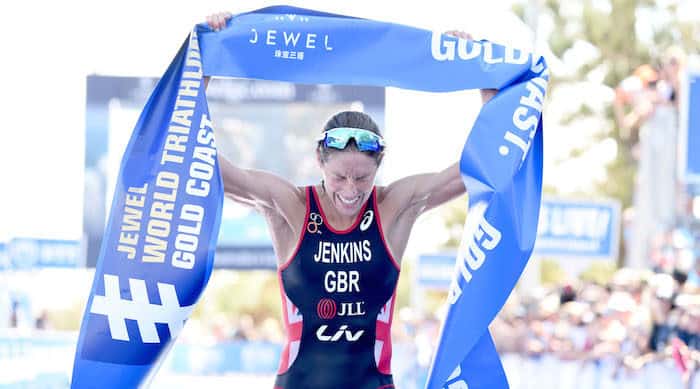
For the British men, things are a little different to my eyes. With Alex Yee already selected, it looks like there will only be one further slot available. Unlike the women – objectively, based on 2023 WTCS performances – nobody is currently in that ‘genuine individual medal contender’ category either. Things can change quickly of course, but right now, there will be a group of athletes thinking that there’s at least an opportunity there to be grabbed – and that takes us to ‘Phase 4’ of the selection policy, namely relay specialists / pilot athletes. It’s a potentially big opportunity too, as joining Yee alongside any two of the selected GB women in the Mixed Relay in Paris is at the very least a podium opportunity.
Joining Yee this weekend are Daniel Dixon and Max Stapley, two young guns who will be among those looking to target that opportunity. With the Mixed Relay event taking place on Saturday (and no Paris qualification issues for Team GB on that front), I suspect – indeed, I hope – both will be given a chance to showcase their potential there. Keep an eye on their races in the individual too – both excellent swimmers, could one or both be looking to potentially assist Alex Yee should the need arise, something Stapley tried to implement in Pontevedra?
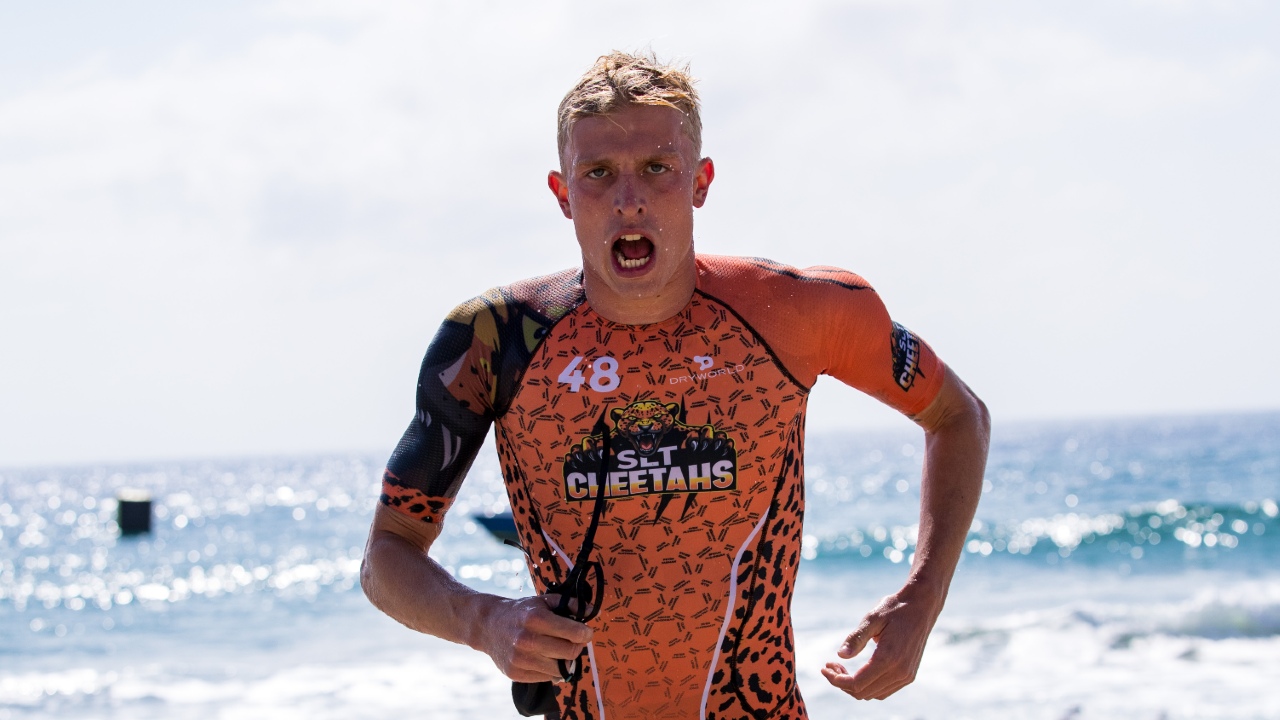
United States – Let battle commence
In automatic qualification terms at least, the Team US window of opportunity is even shorter than that for Great Britain. They are in a similar position, with a wealth of talent in the women’s field, all seeking to claim one of the two remaining slots alongside the already qualified Taylor Knibb.
While the Brits’ key race is Cagliari, for the U.S. athletes their focus falls two weeks earlier in Yokohama. The first athlete to finish in the top three (who is not already qualified) will gain auto selection. That means, for the women at least (who are all but certain of earning three starting slots), that discretionary selection(s) will be made. With the USAT policy explicitly stating that will be on the basis of ‘athletes who can achieve or contribute to a podium result in the individual event and/or to the mixed relay event’, then that adds additional weight to both Individual and Mixed Relay events this weekend.
Interesting to note double Tokyo medallist Katie Zaferes doesn’t even get to start in the UAE this week, with the five USA slots filled by their top-five ranked athletes in the current World Triathlon Rankings (Spivey, Rappaport, Knibb, Kasper, Jorgensen). Instead, Zaferes will race at the Americas Triathlon Championships in Miami – also on Friday – which is part of the CLASH Miami / PTO T100 weekend.
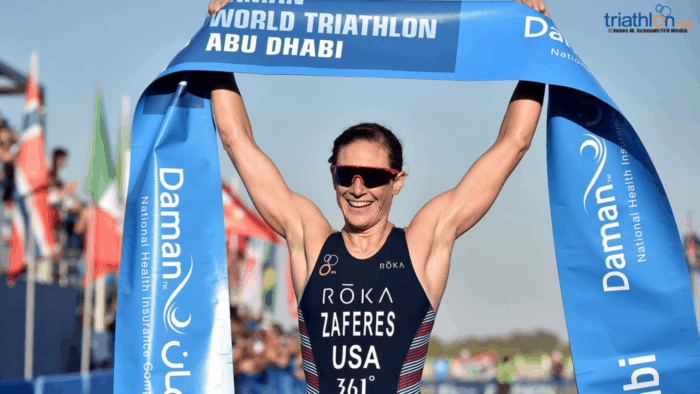
Down Under
The latest AusTriathlon selection policy (HERE) indicates a change to the approach originally posted last year. Seemingly set to gain two slots for both the men and women (and with Matthew Hauser already assured of one), there was initially the prospect of a top-five finish in a WTCS Sprint race (which would have to have been Abu Dhabi) being a route to automatic selection. That’s no longer in place, with – like USAT – the Australian selection now focussed on WTCS Yokohama, a top-eight finish there will be good enough.
Callum McClusky and Sophie Linn secured notable wins recently at the World Triathlon Cup Napier, and aside from that May target in Japan, will want to continue their progress and form, in the perhaps likely scenario that discretionary selections will be made.
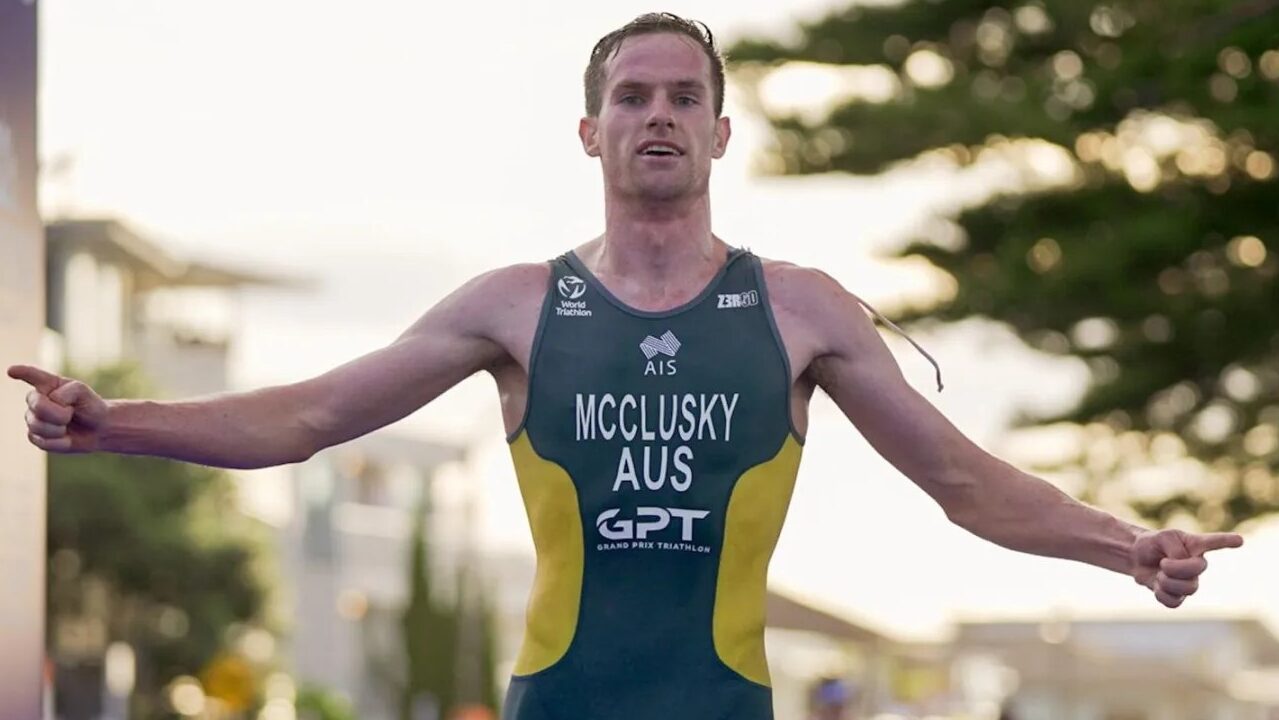
Mixed Relay permutations
It’s worth noting the Federations also have to qualify their nations for the Mixed Team Relay in Paris. Three of those are already known (France, Great Britain and Germany), with another six nations going to the next six National Olympic Committees (NOCs) in the World Triathlon Mixed Relay Olympic Qualification Ranking. Currently, that’s New Zealand, Switzerland, Australia, USA, Italy and Portugal.
Given that Abu Dhabi is the last WTCS Mixed Relay event before the March 25 2024 cut-off for that particular ranking, expect a few nations to be putting out some strong teams to try and close off that box early.
All is not lost however, as there is one final ‘World Triathlon Mixed Relay Olympic Qualification Event’ in Huatulco, Mexico on 17 May where two further nations can qualify. And just to confuse things further (!), any nation that qualifies two men and two women to the Games, irrespective of the route, will get to field a team in the mixed relay event.
Team Norway missed out last time around (but has since won the European Games), yet the situation might be more concerning for the Netherlands. A brilliant fourth in Tokyo, the Dutch are currently sitting 17th in the Mixed Relay Olympic Rankings, and with only Richard Murray (54th) inside the top 140 of the Individual Olympic Rankings. As of today they have work to do to even make it to the Paris start line.
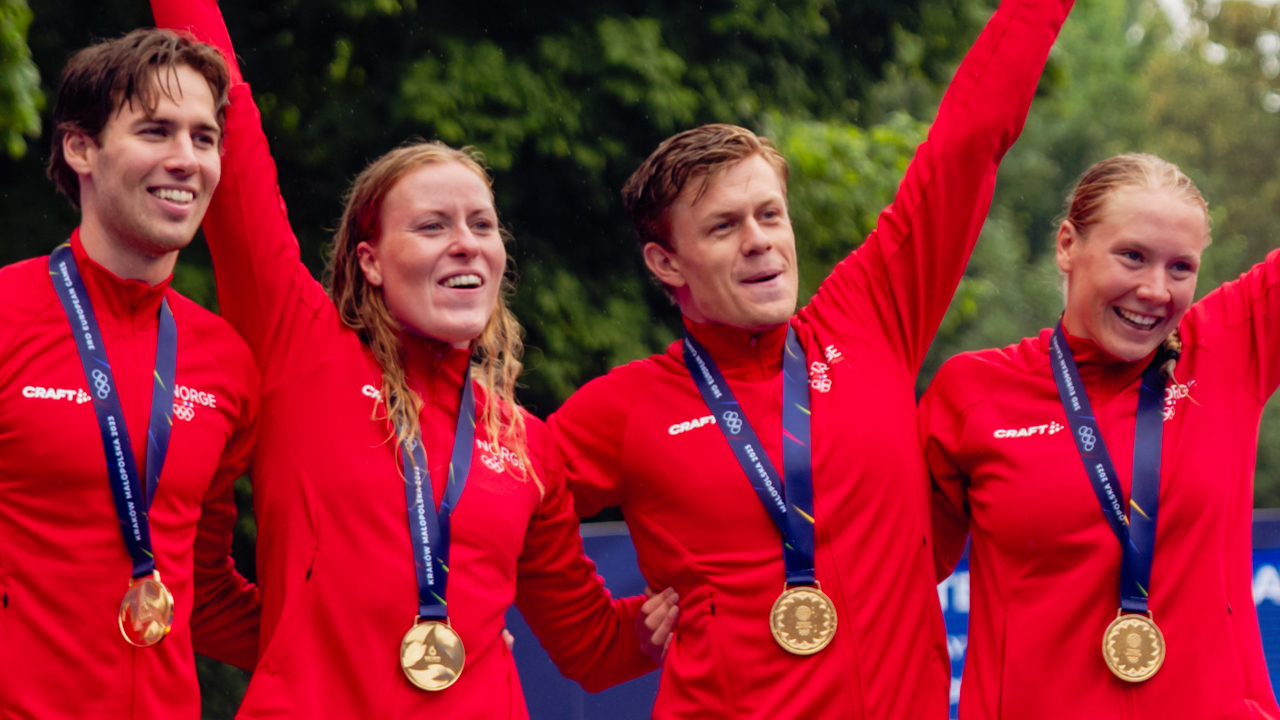
Grab the popcorn!
There will be plenty more narratives to follow across many nations as the season gets under way, as results, form, injuries, rankings and more are all likely to play their part on the road to Paris.
We’ll be following it closely – so tune in and follow the action with us.








